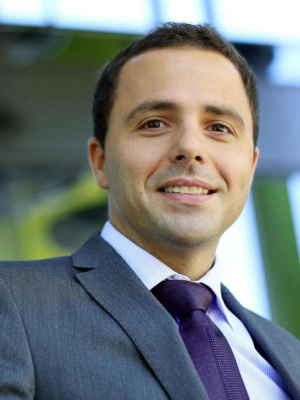Majors
The Finance major provides students with a comprehensive education in both the theory and practice of modern finance. The curriculum emphasizes up-to-date knowledge and practical skills, enabling students to analyze and address real-world financial challenges with confidence.
Students engage with concepts from economics, finance, and business through a variety of teaching methods, including lectures, case studies, simulations, and experiential learning opportunities. Particular emphasis is placed on two key areas of finance:
-
Financial economics, which examines how traders behave in financial markets and the factors that drive price formation.
-
Financial management, which explores strategies businesses use to achieve financial goals and create value.
Graduates of the program are well prepared for diverse career opportunities. They pursue roles in the financial divisions of commercial and industrial businesses, the banking and financial services sector, and in central banks and international organizations. The major also provides a strong foundation for graduate study in business, economics, or finance.
3-YEARS BACHELOR OPTION
This major is also offered as a 3-year accelerated bachelor’s degree, designed for students with specific high school academic credentials who are admitted to Franklin with advanced standing credit, equivalent to 30 US credits. This option grants students a jump start on their introductory level University courses. Learn more about the 3-year bachelor’s degree at Franklin or contact the Office of Admission.
| Fall Semester | Spring Semester |
| BUS 135 International Business |
ECN 101 Principles of Microeconomics |
| MAT 181 Math for Everybody |
BUS 115 Financial Accounting |
| ECN 100 Principles of Macroeconomics |
WTG150 Academic Writing: Crossing Borders |
| Academic Travel class | Academic Travel class |
| WTG130 Introduction to Academic Writing II / Global Responsibility Core | MAT 182 Statistics for Everybody |
| Fall Semester | Spring Semester |
| BUS 226 Managerial Finance |
BUS 358 Financial Markets and Institutions |
| Modern Language | MAT 282 Intermediate Statistics |
| BUS 243T Personal Finance (Academic Travel class) |
ECN 320 Games and Strategic Decision Making |
| Writing Intensive Course (w) | Modern Language |
| Global Responsibility Core | Global Responsibility Core |
YEAR THREE - SAMPLE CURRICULUM
| Fall Semester | Spring Semester |
| ECN 365 Investment Analysis I |
BUS 453 Fintech |
|
ECN 325 |
ECN 496 Senior Capstone in Economics and Finance (W) |
| BUS 405 Portfolio Analysis and Asset Management |
General Elective / Global Responsibility Core |
| Global Responsibility Core | ECN 366 Investment Analysis II (Corporate Finance) |
| ECN 387 Introduction to Econometrics |
ECN 319 |







